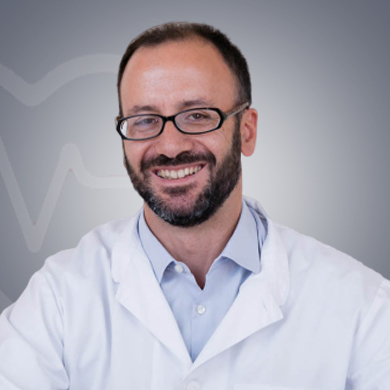
Dr. Kapitzoglou Vasiliki is a specialized Neurologist in Greece. And one of the most sought after medical specialists in Chortiatis, Greece. The doctor has over 30 Years of experience and is associated with Medical Inter-Balkan Thessaloniki.
Association and Memberships Dr. Kapitzoglou Vasiliki is part of:
Qualifications :
Hospital Address :
Interbalkan Medical Centre, Asklipiou, Pylaia-Chortiatis, Greece
What is the medical expertise of Dr Kapitzoglou Vasiliki?

Dr. Koutoula Olga is a specialized Neurologist in Greece. And one of the most sought after medical specialists in Chortiatis, Greece. The doctor has over 20 Years of experience and is associated with Medical Inter-Balkan Thessaloniki.
Association and Memberships Dr. Koutoula Olga is part of:
Qualifications :
Hospital Address :
Interbalkan Medical Centre, Asklipiou, Pylaia-Chortiatis, Greece

Dr. Liverezas Anastasios is a specialized Neurologist in Greece. And one of the most sought after medical specialists in Rhodes, Greece. The doctor has over 10 Years of experience and is associated with Euromedica General Hospital of Rhodes.
Association and Memberships Dr. Liverezas Anastasios is part of:
Qualifications :
Hospital Address :
Euromedica General Hospital of Rhodes, Eparchiaki Odos Koskinou, Tsairi, Greece
What is the medical expertise of Dr Liverezas Anastasios?
Please make sure to see your doctor using Telemedicine before you even board a flight
Listed below are some of the top Neurologists in other cities:
Following are some of the best clinics in Thessaloniki, Greece with whom Neurologists are associated with:
Check out the procedures performed by neurologists in Thessaloniki:
Most common conditions performed by neurologists in Thessaloniki, Greece are:
A neurologist is a medical doctor who specializes in diagnosing, evaluating, and treating conditions that affect the nervous system. Because of the complex nature of the nervous system, most neurologists focus on treating certain people with specific neurological conditions. Neurologists are generally highly trained clinicians who are capable of diagnosing complex diseases through a complete history and physical examination, including testing of vision, mental status, strength, speech, coordination, sensation, reflexes, and gait. Even when medicine becomes more dependent on newer technology, the neurological exam would remain a critical part of the patient evaluation. A neurologist does not perform surgery. If a patient requires surgery, they usually refer them to a neurosurgeon.
Since neurology deals with the brain and the entire nervous system, there are several conditions that neurologists can diagnose and treat. Most of them go on to study a specific subset of neurology after finishing their residency training. During your appointment with a neurologist, they will talk ask about your medical history as well as your symptoms. They will also do a physical exam that focuses on your nerves, spines, and brain. They have a good idea of your diagnosis from your thorough exam, but you'll need other tests to confirm it.
A person who wants to become a neurologist needs to first complete a 5½ year- MBBS degree and then a 2-3-year MD/DNB course. After obtaining the master's degree in neurology, the candidate will have to complete D.M. (neurology) course to specialize in the field of neurology.
The first step to becoming a neurologist is to get a bachelor’s degree from an accredited college or university. A medical student needs to complete a five-and-a-half-year MBBS program that prepares a student to work as a medical doctor. A student’s final two years will include clinical rotations in his or her chosen medical specialty.
A neurosurgeon residency program prepares a doctor to work in the field and also offers the opportunity to complete rotations in many areas of surgery and sub-specialties. As a doctor has additional experience and responsibilities, they can start focusing on neurosurgery. A neurologist has the opportunity to extend their training after doing residency by completing a spine fellowship program.
Some conditions a neurologist treats are:
To diagnosis a nervous system disorder, a neurologist starts with a complete medical history as well as a physical exam. They might also use one or more of these tests:
A person needs to consult a neurologist if he/she experiences below signs and symptoms:
When you reach the clinic, you will meet with a skilled neurologist for a physical exam and diagnostic tests. The doctor would ask you about what you are experiencing, and will ask you about your medical and prescription history. Neurologists will do a physical exam addressing your nervous system responses. Following a physical exam, a neurologist might also want to run diagnostic testing to get more information. After your consultation, the neurologist would explain your next steps, including any diagnostic tests, new prescriptions, future appointments, and therapies.
Top Medical Specialities in Thessaloniki, Greece are: